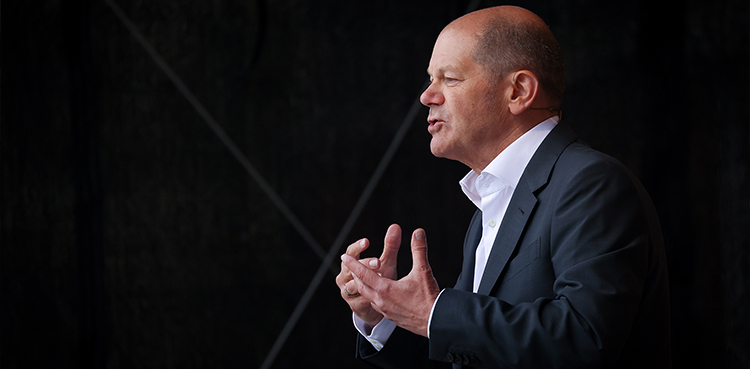
Germany’s Social Democrats on Sunday won a closely-fought regional election that was dominated by worries over soaring energy costs, giving Chancellor Olaf Scholz a welcome boost as a difficult winter looms.
Scholz’s centre-left SPD was set to remain the largest force in the coastal state of Lower Saxony, taking around 32.7-33.3 percent of the vote, according to exit polls by public broadcasters ARD and ZDF.
The conservative CDU party of former chancellor Angela Merkel came a distant second at 27.5 percent, its worst result in the state in six decades.
The election was widely billed as a key test of Scholz’s handling of the energy crisis caused by Russia’s war in Ukraine. The outcome marks a turnaround after his SPD lost the last two regional polls to the CDU, in North Rhine-Westphalia and Schleswig-Holstein.
The Greens, Scholz’s coalition partners on the federal level, surged to around 14 percent, their best-ever showing in the state.
The far-right AfD also had reason to cheer, nearly doubling its result from five years ago and climbing to almost 12 percent as it capitalised on voter anger over the rising cost of living.
The AfD “is a protest party” that benefits from “crisis and fears”, political scientist Karl-Rudolf Korte told ZDF.
The liberal FDP, Scholz’s third coalition partner in Berlin, appears to have only narrowly scraped the five-percent threshold required to enter into the regional parliament, according to the preliminary results.
– ‘Referendum’ –
The Lower Saxony election was “very important” for Scholz, Korte told ZDF, calling it “a referendum” on the federal government’s handling of myriad crises since coming to power almost a year ago.
Russia’s war in Ukraine has sent energy costs soaring, pushing German inflation to a record-high of 10 percent in September and fuelling fears of a looming recession in Europe’s top economy.
Support for Scholz’s SPD has fallen below 20 percent in national opinion polls, well behind the CDU in first place. Scholz’s own popularity ratings have also taken a hit.
Lower Saxony’s incumbent premier Stephan Weil from the SPD, whose popularity with local residents played a large role in Sunday’s victory, said he was “relieved” his party had a clear mandate to govern in Lower Saxony.
“We fought and tonight we won, my friends,” he told supporters.
Weil, set for a third consecutive term, had previously called the election contest “the most difficult of my life”.
“Never have I seen so many question marks and worries on citizens’ faces,” he said.
The 63-year-old has cast himself as a safe pair of hands in uncertain times and wants Lower Saxony — home to auto giant Volkswagen as well as most of Germany’s wind turbines — to play a leading role in the green energy transition.
He has also welcomed a 200-billion-euro ($198-billion) energy fund newly unveiled by Scholz to shield German consumers from price shocks.
The fund however has been criticised by European neighbours who don’t have the same fiscal largesse and fear a splintering of EU unity on Ukraine.
Weil’s main challenger in Lower Saxony, state economy minister Bernd Althusmann from the CDU, announced his resignation as regional party leader shortly after the results were announced.
Sunday’s vote was “not a pretty result for us”, said CDU secretary general Mario Czaja.
The path is now clear for Weil to ditch his coalition government with the CDU and team up with the Greens instead.
– Nuclear plant row –
A major bone of contention between the SPD and the CDU during the election race was the fate of Lower Saxony’s Emsland nuclear power plant — one of only three still operational in Germany.
The CDU has been angered by Berlin’s decision to proceed with Emsland’s planned shutdown this year, despite the need for energy diversification as the country weans itself off Russian gas and oil.
German Economy Minister Robert Habeck, from the traditionally anti-nuclear Greens, recently announced the other two plants will be kept on standby until April 2023, in a landmark U-turn.
Weil has backed Berlin’s stance, saying Emsland was not needed to secure Lower Saxony’s energy supply.
from International News Today - Breaking News, US News, World News https://ift.tt/aO6yErw

0 Comments